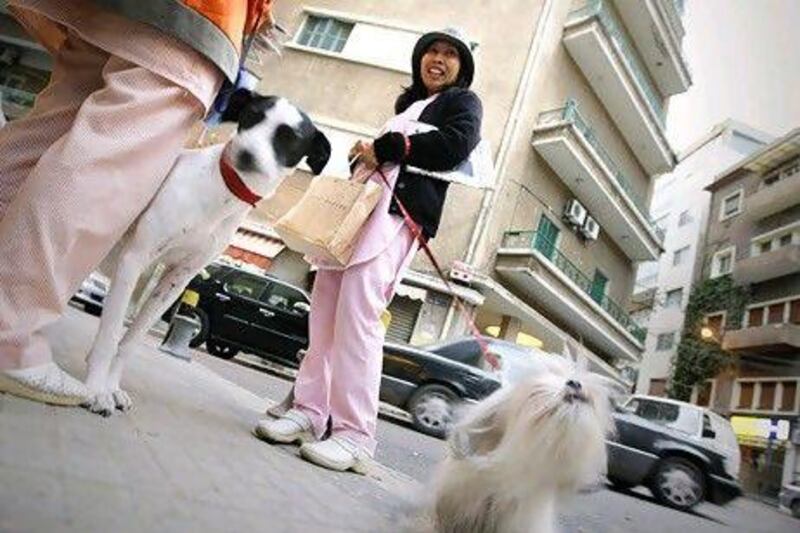I enjoy luxury as much as the next person. Indeed, I would fly first class all the time, given the chance (only bonkers billionaires prefer to sit meekly in coach), but when it comes to the abbreviation VIP, there is something that offends my crypto-socialist sensibilities. Show me a VIP lounge and I will show you a bunch of very unimportant people.
Maybe I am taking the word too literally, but in Lebanon, our obsession with status has made us ugly, and it has given me a nasty rash.
From mobile phone and banking products to beach clubs and cinemas with VIP areas that play on the Lebanese anxiety of always wanting to be part of the in-crowd, status is everywhere.
Playing the foreigner card will not guarantee a forelock tug either. Last week, a friend told me that she saw two European men get out of a cab in front of a well known Beirut beach club only to be turned away at the entrance. "I was surprised," she said, "but then my brother explained it was because they came by service taxi. Normally, we treat the westerner like royalty, but I guess we have learned to identify the budget tourist".
In such a milieu, no wonder the idea of a Filipino, Sri Lankan, Ethiopian or Sudanese domestic worker trying to gain entry to one of these establishments to soak up a bit of sun makes many Lebanese uncomfortable.
There are over 100,000 migrant workers in Lebanon, most of them employed to clean our homes. It's not a great system. They are not protected by any meaningful labour law, and every summer, we are reminded that these women are not always welcome everywhere when they are on their own time.Last week, activists from the Anti-Racist Movement (ARM) filmed a girl trying to get into the popular Saint-George Yacht Club to prove that she would be turned away at the door because of her skin colour.
And guess what? She was. She was told she had to be a member even though other customers were walking in by paying the US$26 (Dh95) entrance fee while she argued. The cops were called, statements were taken and ARM filed a complaint.
Do I blame the beach clubs for having a door policy? They wouldn't be the first businesses to filter customers to ensure the "right" people make it inside, so it's a tricky one to call. Let's face it, I would have trouble getting into many nightclubs in London. I would also wager that those people who say they are shocked by foreigners being turned away because of their colour would never go to a beach if it were filled with the wrong sort of Lebanese, let alone migrant workers.
There is, however, a worrying problem. This seasonal soul-searching began more than a decade ago when maids were not allowed entry to beach clubs,ever. Right or wrong, it's how the owners ran their business.
But now the maid has become an extension of the Lebanese family, and beach clubs have been forced to revise their policy, but not in the way you might think.
Most clubs will let them in free to help with little Omar and Yasmin - and this is where it gets nasty - as long as they don't swim.
It is a disgusting policy. The club should charge an entrance fee and the nanny should be allowed to use the club like anyone else. But it happens because customers accept it.
They have simply become so wrapped up in their own livesthat they can't see or they refuse to see that something is very rotten in the state of Lebanon. Lebanon's tourism bosses should draft a clear policy on basic human behaviour before the country's dirty secret gets out.
While it continues, we are SUPs - supremely unimportant people.
Michael Karam is associate editorinchief of Executive, a Lebanese regional business magazine





